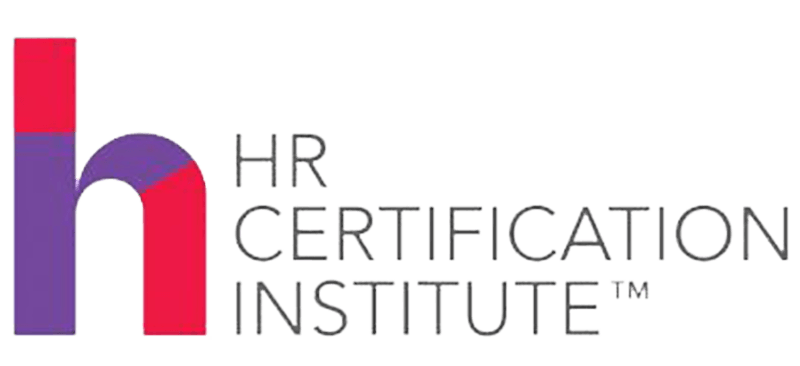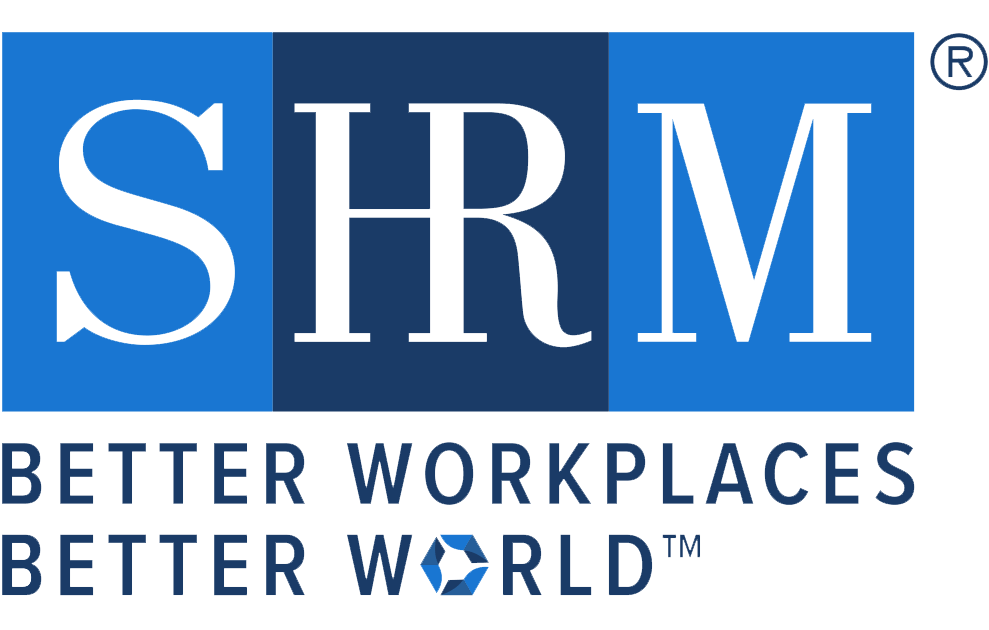How to Hire Employees Successfully and Consistently?
As a leader, the ability to hire employees successfully is one of the most important skills you can develop. A successful hiring process can make all the difference between wild success and miserable failure for a company. But what makes hiring managers truly successful? Here are some key tips and strategies to help you succeed in this important role.
Make hiring the best candidates your top priority as a leader.
This means setting aside the time and resources necessary to identify and recruit the best qualified candidates, and making sure that your interview process is as efficient and effective as possible. It should be so important that in a small business there should even be a nod to it's importance in the company's mission statement and core values. An example core value could be:
"We Hire Employees who believe our clients success is the most important outcome our business can deliver"
By making the selection of an ideal candidate every time you hire a top priority, you can more consistently bring in the very best job candidates to join your team.
Hiring Academy's

Invest in mastering hiring by exposing your leadership team to training and coaching through a Hiring Academy led by experts with over 10,000 interviews under their belt.
They will walk you through the foundational steps to prepare for a new hire, how to Attract the best talent, Candidate evaluation strategies to consistently select the best people, and how to implement Training and onboarding programs to ensure new hire success.
Practice is crucial

.......to become consistently successful at hiring employees. This means learning from your successes and mistakes, and continually improving your hiring process to make it as effective as possible. When a hiring manager selects their first hire it may not always work out and that's ok if you take failure as an opportunity to grow. The first employee might not be the right person for the job but by reflecting on what went right and what could have been improved in the hiring process or which interview questions were used it sets the stage for improvement opportunities. These may involve experimenting with different recruitment strategies, such as networking and headhunting, and tracking the results to see what works best for your company.
Put an emphasis on training a new hiring manager on how to execute a winning interview process consistently. By practicing, training and continually improving, you can develop a team of hiring managers who are committed to hiring the best new employees for your team.
Master the best Interview questions and use Hiring Assessment tools.

The Art of Being Curious
This means asking the right questions during interviews and getting to know potential candidates on a deeper level. By being curious and taking the time to really understand a candidate's skills, experience, and goals, you can better assess their fit for your team and make better hiring decisions. But not all interview questions are equal, focus on questions that allow you to dig into what has made the candidates successful in the past.
Achievement focused interview questions set the stage for a deep dive conversation into what kinds of skills, abilities, tools, experiences, and other qualities they used or mastered to accomplish their most significant achievements. By using your Colombo skills to leverage the Art of being curious you will learn a ton about a candidate. All it takes is simply being curious about the who, why what and how of what the person really brings to the table. The biggest mistake interviewers make is taking a candidates first response to an interview question as all there is to know.
Here are 72 position specific interview guides, each loaded with skill and behavioral based interview questions to get you started. Remember just be curious.
Pre-employment Tests
Are are great way to narrow a field of hundreds of applicants or to highlight areas of concern about a candidates attitude or integrity. Hiring assessments are great for new hiring managers learning to identify key personality traits, culture match qualities and soft skills that can be hard to detect just through interviews alone. Also a good assessment will help you be more inclusive of diverse candidates enhancing diversity, equity and inclusion initiatives which can significantly increase company revenue, profit and intellectual property development.
Checking References
Reference checking is an art form of all it's own. It first starts with mastering the "Reference Question" interview technique. The essential part of the strategy is get candidates to set up calls between you are their past supervisors (yup that is it we want to speak with at least the last 10 years worth of past bosses. The candidates inability to get these people to speak with you and say nice things about them tells you just about everything you need to know about your new hire. But if you don't have time to talk to all your candidates previous supervisors you can try Automated Reference checking tools which can be equally as effective. If the candidate is still employed then make speaking to their current supervisor a condition of the job offer.
Working Interviews
Are a great way to prevent buyers remorse on both sides of the hiring equation. Before you make a formal job offer have the candidate complete a sample project, come in for a day, shadow someone currently in the role and do a few key tasks related to the job. All this help you see how they adapt, communicate and learn new things that they will be doing as a job responsibility. They get to learn more about your company culture to decide if they will be happy working at your company. There are lots of benefits to working interviews and they don't take a lot of effort, a lot less than a false start hire!
Be your own Recruiter

As a hiring manager, you can be your own head hunter by proactively seeking out and recruiting qualified candidates for your team. This is especially important skill to develop if you need to hire employees with specialized skills This may involve networking and reaching out to potential candidates, as well as attending job fairs and industry events to connect with potential hires. By taking an active approach to recruiting, you can identify your ideal candidate by searching databases provided by job sites such as Linkedin, Indeed and Zip Recruiter. By conducting a personalized outreach to connect with people who seem to have the ideal work history you can engage the right candidate for your job opening that may not have otherwise applied for a position with your company.
Case study "1 hour to find a Rockstar"
I did this with my friend Nick recently after digging into what he needed we devised a plan for him to head hunt his own talent. He curated a list on Linkedin of people who had experience in his industry doing the exact job he was hiring for, who had longevity in their roles, and signs they were high performers. He wrote the best candidates a personal note asking them to have a short chat to get to know each other better. Within 3 days he had interviews with 2 candidates who had high potential. It only took him 1 hour of his time and he saved over $30,000 in recruiter fees.
Recruitment Marketing to attract active candidates
In addition to networking and reaching out to potential candidates, there are other strategies that can help you be your own head hunter. For example, you can leverage your company's employer brand and online presence to attract top talent. Post jobs on job boards and social media, highlight your workplace culture and values to potential candidates on these job boards to attract the best job seekers.
Finally, it's important to be proactive and persistent in your headhunting efforts. This means reaching out to potential candidates and following up regularly to keep them engaged and interested in your company. Set aside 30 minutes a day to these activities and you will likely be meeting with your future new employee before you know it.
Leverage your internal Recruiter and HR professional effectively for faster results
To get more effective results from your HR and recruiting teams, it's important to provide clear direction and guidance about the job's responsibilities. Nothing is more frustrating for an HR professional than having hiring managers who keep telling them one thing then rejecting candidates for some reason that was never discussed or not covered in the job description. If they become frustrated with working with you their interest in supporting you find the ideal candidate, deal with job postings and facilitating the hiring process will be diminished only to prolonging your ability to hire employees.
Regular Scheduled Check-ins
To prevent this they will need your ongoing support and regular structured feedback. By meeting with your HR and Recruiting partners on a scheduled regular interval to review job applications for desired skills, job descriptions and the hiring process it is easier to recalibrate and make adjustments that will speed up the process of hiring employees. It can be hard for HR professionals to understand every little detail in the job description and expectation hiring managers might have so these regular check ins really help keep everyone aligned before the hiring process is derailed.
Hiring KPIs and Metrics
Another important component of working with internal recruiting partners is to establish clear metrics and KPIs to track their performance. This may involve tracking key metrics such as the number of candidates recruited, the time to fill open positions, and the quality of the candidates recruited. By tracking these metrics, you can identify areas for improvement and provide feedback and guidance to your HR and recruiting teams to help them improve their performance.
Ongoing training and professional development is critical for everyone involved with the responsibility to hire employees. No one is taught this stuff is school and at best the lucky few have mentors who teach them how to write effective job descriptions and conduct interviews. This may involve offering workshops and seminars on topics such as effective recruiting strategies, interview techniques, and providing tools like applicant tracking systems. By providing your HR and recruiting teams with the tools, knowledge and skills they need to succeed, you can help them improve their performance and get better results for your company.
Patience is important as a hiring manager.
It can take time to find the right candidate, and rushing the hiring process can lead to mistakes and poor hiring decisions. Even if you find people with the right specialized skills they still may not be a company culture fit or vice versa. Getting the right candidates to engage in your job post who will succeed at the job responsibilities or to do active outreach to recruit people takes time and screening a lot of job seekers.
There is nothing worse than spending all that time in the in the hiring process to welcome a new employee to the team for them to crash and burn because we rushed creating a job description or didn't master finding the right candidates and not practicing how to conduct interviews that result in highly predictive data. It can take months to hire and execute the onboarding process and to do that twice feel almost unimaginable. All of the time and energy to only have to start all over again takes twice as long as doing it right the first time. It's like your grandfather always used to say measure twice cut once!
The Onboarding Process and Job Descriptions are just as important as the interview process

Before your new hire shows up on their first day of work there are a number of administrative tasks that should already be taken care of so you can focus on getting to work not doing paperwork. Here are list of items to think about tackling before a new hire has their first day:
- Review the job offer with new employees in detail and get a verbal and written agreement of their satisfaction not just acceptance of the offer.
- Collect their tax forms Add them to your payroll system or have your payroll service get them set up properly so their tax withholding are properly set up for payroll taxes
- Get things like background check and employment eligibility paperwork taken care of
- Send new hires the employee handbook so they can get a jump start on reviewing it.
- Start setting up and discussing employee benefits to show you new employee that you take their well being seriously
- Review the job description with your new employee again both verbally and the written document so they can begin thinking about what to expect before they even start.
What about hiring Remote employees?
Honestly not a lot changes. If you are executing a well planned structured selection process and a solid onboarding process then you are well on your way to being successful hiring remote candidates too. But that is the key we can sort of get lazy when we do everything in person we sort of just think well we are close by we can check in on our new hire employees whenever we need to and that gives us a false sense of security because the reality is structure and intentional actions always deliver better results. My favorite Einstein quote, "Failing to prepare, is preparing to fail"
Big thing is leverage video calls as much as possible. Schedule interactions to make sure they happen and to avoid missed connections. The importance of reference checks, pre-employment tests and working interviews continue to be critical to ensuring you have the best candidate for the job.
Communication cadences, training and performance management become critical to long to term success of remote workers but that is whole other topic we don't have time for today.
Small Business Owners If this is your first new hires consider these items before making
- Start by getting an employer identification number EIN set up with Federal government, State employment agency may require a separate number that can be obtained by your state's tax agency. For tax purposes you will need these to handle withholding taxes and to file taxes
- Purchase Workers Compensation Insurance as a workplace injury can bankrupt a small business with costly legal and medical fees
- Contact the State's labor department to display workplace posters to share information about things like being an equal opportunity employer, information about the social security administration, local and federal labor laws, and other local employer notification requirements
- Set up a payroll service or payroll system as the legal requirements can be tricky to navigate on your own as a small business owner. These services can also help you streamline the process of paying employees, workers compensation, withhold taxes and new hire reporting requirements. Costs for these services can be less than $100 per month and are readily available and easy to set up once you have handled the first three items on the list.
- If you are hiring remote employees in another state you will have to repeat many of these steps with each state's labor agency to obtain an additional employer identification number for that particular state.
- Typically each state you have an employee in creates nexus therefore it is good idea to consult a CPA to get tax advice and a legal professional to discuss any new potentially complex legal requirements that you may have to comply with by having a new remote employee in a different state.
In conclusion, successful hiring managers prioritize hiring the best candidates, continually improve their hiring process through practice and training, master the art of being curious and asking the right interview questions, and use hiring assessment tools to make better hiring decisions. By following these tips, leaders can build a strong and effective team of employees who are committed to the company's values.




